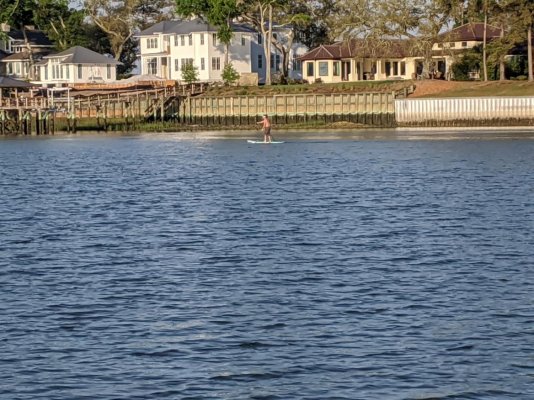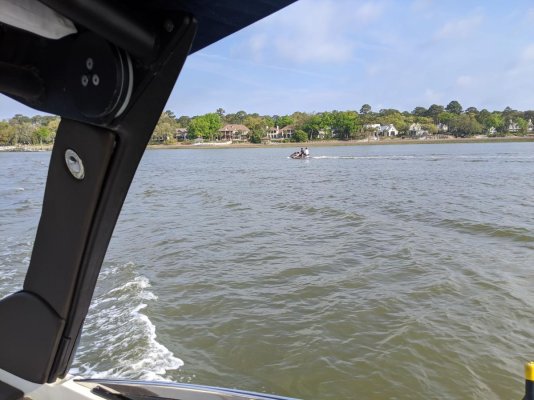My favourite rant here, where is La Center. Where you are is important as to advise. Google Maps says there are two, one in Washington and one Kentucky. I'm assuming you aren't in Kentucky. In the PNW, gear is more important than survival training.
Survival training is for the long haul, not being on the water for four hours. Here in PNW/BC VHF coverage is quite good. It is generally assumed you won't be out for a long time if you have successfully signalled your emergency situation.
So let's look at the list posted above: 3 basics of water survival are stay afloat, stay warm, get found.
I'm a redundancy freak so I don't only rely on my boats fixed radio DSC, or on my handheld with DSC, but also a first generation Spot. Are latter generation Spots and Inreach better - Yes - but the critical ability to send out a signal with location and urgency can successfully be done with the original Spot.
Staying afloat. I'm a RIB kind of guy, I don't get the use of hard dinghies when it comes to nasty seas and survival. Just read a story in Pacific Yachting, can't remember if it was the most current one, of a guy who ran into trouble in a dinghy with only oars. He tried to make it to his boat but the current was too strong and was pushing him away from his boat, he had a young daughter with him. I was slapping my head saying silently to him: "Don't be a cheap ass, use a motor sufficient to last a decent amount of time, not propane or electric, and strong enough to move you quickly to safety." The reason I'm not a propane fan is I seriously considered getting one for myself and I thought, you know I could see myself running out of propane BBQing and convince myself it is okay to use the dinghy propane tank.
Because land is so close to us and rescue is so close, getting on a dinghy that floats in nasty conditions with an engine and some proper communications should allow you to weather having to abandon a boat. Of course, reality sometimes conspires to defeat all well laid plans, but I still will bet on the guy who prepares given his locale, communications and floating survival resources.


